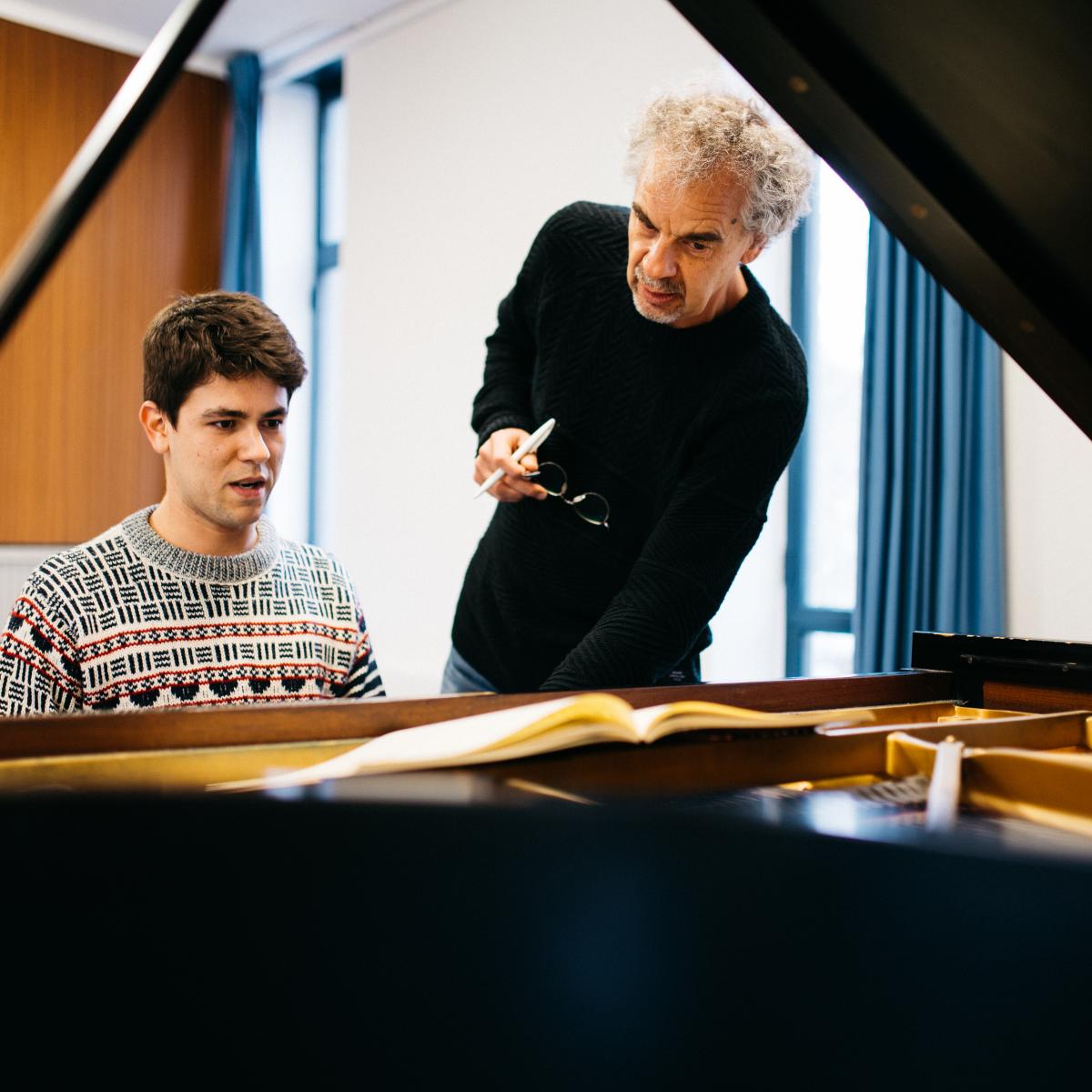
Bachelor
Piano
The Classical Piano studies at Conservatorium Maastricht consist of a Bachelor’s and a Master’s degree.
In the Bachelor’s programme, you will focus mainly on developing a thorough and professional technical basis, as well as studying and gaining knowledge of repertoire of different classical style periods.
In the Master’s programme, you will be completely free in your choice of repertoire, allowing you to adapt this to your own wishes or future needs. The Master’s curriculum offers several optional profiles: solo repertoire, solo repertoire combined with chamber music, or chamber music only. Masterclasses, concerts and projects (e.g. with an orchestra) will be offered regularly to trigger your musical inspiration or to broaden your musical horizon.
Meet our team
Meet your lecturers
Curriculum
Curriculum
|
Major Piano |
More info |
Year 1 |
Year 2 |
Year 3 |
Year 4 |
|---|---|---|---|---|---|
Main Subject and Components related to the Main Subject |
32 |
35 |
35 |
51 |
|
Main Subject Piano |
32 |
35 |
35 |
51 |
|
Professional Development |
5 |
3 |
3 |
||
Orientation on Profession |
5 |
||||
Basic Teaching Skills Instrument Specific Methodology |
1 |
||||
Basic Teaching Skills Lectures |
1 |
||||
Studio Recording Preparation |
1 |
||||
Your Art as a Business Basic Course |
2 |
||||
Your Art as a Business Electives |
1 |
||||
Music Theory |
19 |
20 |
12 |
||
Skills Lab |
6 |
8 |
|||
Creative Lab |
8 |
8 |
|||
Capstone |
4 |
||||
History of Music |
3 |
2 |
|||
Choir |
2 |
||||
Choir Classical (General) |
2 |
||||
Elective Theory Modules |
8 |
||||
Ensemble |
4 |
2 |
2 |
2 |
|
Chamber Music |
2 |
2 |
2 |
2 |
|
Projects B |
2 |
||||
Minor |
8 |
7 |
|||
Free Space |
8 |
7 |
Before you apply
Admission
requirements
First round
The audition consists of two rounds. For the first round, the candidate needs to record 2 videos:
-
Video 1: A short introduction of him/herself in English: talk about your musical experiences, your motivation to study music, your main subject and why you choose to audition at Conservatorium Maastricht.
-
Video 2: In the second video, the candidate demonstrates his/her artistic and technical skills. Each piece should be recorded in one take, without cuts or any edits. Afterwards, the candidate should combine the videos into one single video. The candidate should start by speaking their name and student number of Conservatorium Maastricht. The candidate should record the following:
J.S. Bach; either a Sinfonia, or at least two movements of a French or English suite, Italian concerto, or a Prelude & Fugue from the WTK 1/2.
Two motorical (fast) etudes: e.g., an etude by Czerny Op. 740, Cramer-Bülow (from ’60 selected studies’), Clementi (from ‘Gradus ad Parnassum’), or by Chopin, Debussy, Liszt, Rachmaninov, Scriabin, or comparable.
At least two, in tempo contrasting movements from a classical sonata by Mozart, Haydn, Beethoven, Schubert or Clementi.
Two pieces of choice from two different style periods (later than Beethoven).
Additional video’s (not required): The candidate may provide concert video registrations.
The videos should be uploaded to an online platform such as YouTube.com or Vimeo.com. It is the candidate’s responsibility to make sure that the video links work.
Second round
In the second round, the candidate is invited for an online theory test which determines whether the candidate is admissible. More information about the theory test may be found here.
Furthermore, the audition committee may decide to invite the candidate for an online or in-person live audition after reviewing the video material. The repertoire for the live audition remains the same. Additional repertoire requests can be made by the committee.
Additionally, the theory department may re-invite the candidate for a level test to determine whether the candidate can start the theory program on a higher level.